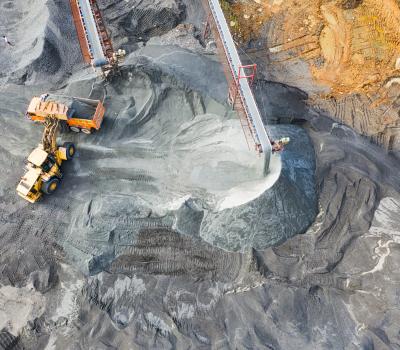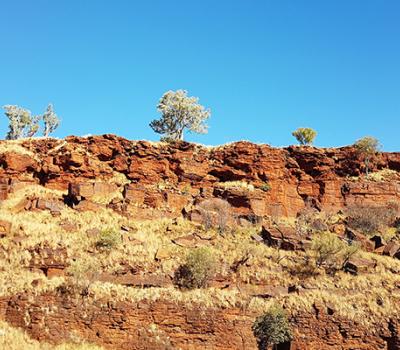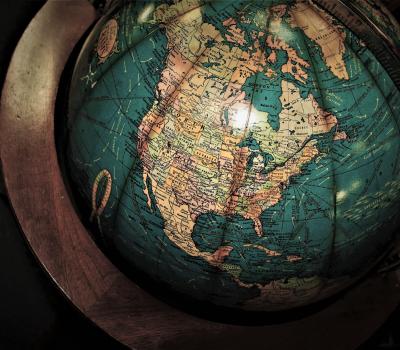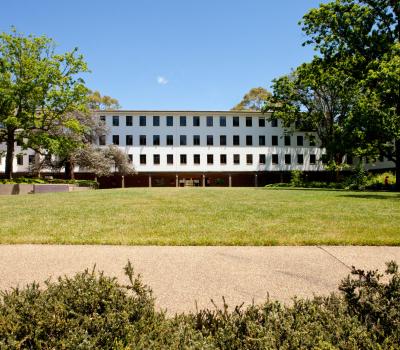COVID-19 has given rise to a series of challenges in international law intersecting with patriotism, borders and equality. These paradoxes have rendered the international legal order’s mechanisms for collective action powerless precisely when they are most needed to fight the pandemic. The 'patriotism paradox' is that disengagement from the international legal order weakens rather than strengthens state sovereignty. The 'border paradox' is that securing domestic populations by excluding non-citizens, in the absence of regulatory mechanisms to secure adherence to internal health measures, accelerates viral spread among citizens. The 'equality paradox' is that while pandemics pose an equal threat to all people, their impacts compound existing inequalities. Professor Hilary Charlesworth AM, FAAL, FASSA (University of Melbourne, ANU School of Regulation and Global Governance); Associate Professor Jeremy Farrall and Dr Imogen Saunders (ANU College of Law); and moderator Professor Anthea Roberts (ANU School of Regulation and Global Governance) explore these issues in this video.
Watch the book launch of Belonging – A Novel, a book written by ANU College of Law Associate Professor Anthony Hopkins. The book was reviewed by Professor Asmi Wood, ANU College of Law, ANU Indigenous Alumnus of 2020, and launched by Professor Sally Wheeler OBE MRIA FAcSS FAAL, Pro-Vice Chancellor for International Strategy and Dean of ANU College of Law.
Buy the book from Harry Hartog here or the ebook from Smashwords here. All profits made from the sale of the book will be donated to Country Needs People, an Australian Charities and Not-for-profits Commission (ACNC) registered charity and non-profit in Australia supporting Aboriginal and Torres Strait Islander sustainable management of land and sea.

An interim review of the Environment Protection and Biodiversity Conservation (EBPC) Act 1999 (Cth) found the law is "ineffective" amid the current "unsustainable" environmental trajectory. How can our laws protect our national landmarks, conserve vulnerable ecosystems and safeguard our species amid an extinction emergency?
Our panel: The The Hon Justice Rachel Pepper, Land and Environment Court of NSW; Rachel Walmsley, Environmental Defenders Office (EDO); Annika Reynolds, GreenLaw and Bachelor of International Security Studies/Laws (Hons); and Professor Jamie Pittock, ANU Fenner School of Environment and Society (moderator)
Find out more about Green Law here. Read the EDO's report here. Further information about the Queensland climate change human rights challenge here.

Over the past decade, advances in machine learning have led to major breakthroughs in the development of artificial intelligence (AI) systems. Will machine intelligence surpass human intelligence within the next few decades? How can we protect against unintended consequences? Can the law keep pace with rapid technological progress? Join a panel of leading interdisciplinary experts – Dr Will Bateman, Dr Tiberio Caetano, Dr Atoosa Kasirzadeh and Dr James Popple (moderator) – as they explore the complex legal and ethical challenges AI and automated decision-making present to industry, government and the legal profession.

At a time of rising populism and debate about immigration around the world, this Web Symposium – jointly sponsored by the ANU College of Law and the International Association of Constitutional Law’s Membership and Exclusion Research Group – introduces and examines the important new book authored by Professor Jo Shaw, The People in Question: Citizens and Constitutions in Uncertain Times.
Professor Shaw introduces the key themes of the book before hearing and responding to a selection of expert commentaries from scholars in the field drawn from the Asia and Pacific region.
Find out more about The People in Question: Citizens and Constitutions in Uncertain Times here.
Hosted by the Law Reform and Social Justice (LRSJ)
On 24 May 2020, Anglo-Australian mining giant Rio Tinto destroyed two 46,000 year old rock shelters at the Juukan Gorge in the Pilbara region of Western Australia – the traditional lands of the Puttu, Kunti Kurrama and Pinikura peoples, for whom these sites were sacred. News of the government-approved destruction attracted international condemnation and national soul searching, as attention turned to the manifest failures of Australia’s heritage protection and land rights regimes.
As we await the findings of the Joint Standing Committee on Northern Australia, Professor Peter Veth, Greg McIntyre SC and Dr Virginia Marshall share their views on the adequacy of these legal regimes, and the relationship between the extractive industries, Indigenous communities, and the law.

Witness K, a former Australian spy, and his lawyer, former ACT Attorney-General Bernard Collaery, are currently being prosecuted for breaches of the Intelligence Services Act 2001 (Cth). The allegations relate to the exposure of Australia's alleged espionage against Timor-Leste during the negotiation of a resources treaty between the two countries in the early 2000s.

Have you ever wondered who rules the vast expanse of air and space extending for thousands of kilometres above the stratosphere? Or what the implications are for Australia – and the world – of a space-based conflict? Find out what the expansion of human activity in space means for law and governance in the 21st century during this panel discussion presented for ANU Open Day 2021. You’ll also discover how space law can enrich your undergraduate or postgraduate studies at the ANU College of Law, as well as the career pathways that await the next generation of space lawyers.

The Australian National University (ANU) International Law Society was founded a decade ago as a student organisation dedicated to furthering the study and enjoyment of international law. In this session, you’ll hear about the experiences and opportunities its executive members, past and present, create for students and discover the rewarding pathways a career in international law can create for you.

Experiential learning is a formative part of your ANU Law degree. In addition to internships and clinical programs, many students hone their practical legal skills through casual work as a paralegal or clerkships on the side of their studies. These opportunities can be undertaken in Canberra, interstate and even internationally. So, where do you start when considering what placement is the best fit for you? What skills can you expect to gain? And are virtual internships just a fad in the pandemic age, or are they here to stay as an equitable alternative? Watch our panel discussion featuring ANU College of Law students who share their experiences and advice on applying your legal skills in a practical setting.

Ever wondered what it's really like to study law at university? Get the inside scoop from Maddy and Tiger as they tackle law school together. In this episode, Maddy and Tiger introduce themselves and trace their own journeys as students at The Australian National University. They also reveal what makes Canberra the perfect student city and share their work experiences as aspiring legal professionals.

The ability of employees to speak freely, both in public and private sector contexts, is increasingly being challenged.
This concluded webinar was moderated by visiting fellow and alumnus Kieran Pender (BA (Hons) '16, LLB (Hons) '18) and featured panellists including Josh Bornstein, Kate Eastman SC, Professor Adrienne Stone and more as they considered how to reconcile employees’ free speech rights with employers’ interests.

As part of the Menzies Cyber Law Series, this dialogue on 7 October 2021 explored financial exchanges for space minerals, geospatial technologies, space law ethics and policy, as well as finding and losing ourselves in our personalised and socialised cyber-galaxies.

On Wednesday 2 September, Professor Anne Twomey of the University of Sydney, joined us over Zoom to present as part of our ANU College of Law Visitors Seminar Series. She addressed the non-statutory executive power relied upon by the Commonwealth to use the Australian Defence Force to provide aid, including prerogative powers, as evidenced during the Black Summer bushfires response.
Note: Subsequent to this presentation, a bill has been introduced to address one aspect of what was discussed (on immunity) which can be found here.

ANU Law alumna, The Honorable Justice Rachel Pepper (BA ’92, LLB (Hons) ’94), visited the ANU College of Law on 29 March 2019 as part of our Visiting Judges program.
Justice Pepper offered early career advice to students during a lunchtime meet and greet before delivering a seminar on access to justice and the rule of law.

Our International Student Orientation Program is designed to introduce new international and exchange students to Australian political and cultural institutions which are relevant to the study of Australian law. Located just minutes from the ANU College of Law, the High Court of Australia is the top court in Australia's judicial system. Students revelled in the opportunity to learn about its functions and make tangible connections to landmark cases they have studied as part of their ANU Law degree.

In the lead up to mid-semester exams in 2019, ANU College of Law welcomed four-legged friends from the Delta Society to help students unwind.

As part of our 60th-anniversary series of events, we were proud to present a virtual discussion about the rule of law in China. What is the end game of Xi Jinping's push to institutionalise and legalise party leadership over the law?

During ANU Virtual Open Week 2020, our current undergraduate and postgraduate students discussed the support programs available to first-year students, student-run programs and societies such as Law Reform and Social Justice, and support for remote study.

Between 3 and 5 September 2019, the ANU College of Law hosted an International Dispute Resolution intensive workshop for Bachelor of Laws (Hons) students. The workshop included multilateral negotiation and conciliation exercises based on real-world disputes including those in Kashmir, Syria and Myanmar.
